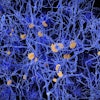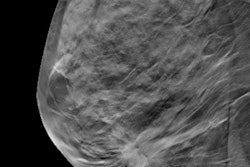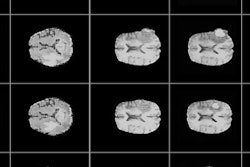Dear MRI Insider,
The progress of artificial intelligence (AI) and the development of 7-tesla MRI have allowed researchers to further explore territory not easily navigated in the past.
The most recent example is the work of European researchers to combine 7-tesla functional MRI scans with newly developed AI algorithms to determine how the brain connects with a person's memory and past experiences to solve daily problems and questions.
Results suggest the hippocampus is the key that unlocks the past by retrieving memories; it then acts as the "big-loop recurrent circuit" to recirculate that initial activity back into the hippocampus and trigger the retrieval of other related memories. More fascinating details are available in our Insider Exclusive.
AI technology is also helping to create synthetic brain MR images, which could be used to augment existing datasets or even on their own to train other deep-learning algorithms. The cutting-edge technique has also been on the rise for applications such as creating synthetic head CT images and for synthetic x-ray images.
Two other recent studies highlight the value of MRI for breast imaging. In one, researchers found that breast MRI is an effective tool to further assess inconclusive digital breast tomosynthesis (DBT) findings. Although equivocal findings on DBT are usually rare, radiologists do encounter them, which makes breast MRI a reliable alternative.
In addition, women at high genetic risk for breast cancer benefit more from twice-yearly dynamic contrast-enhanced breast MRI (DCE-MRI) than from annual mammography. A new study from the University of Chicago Medical Center found that DCE-MRI every six months worked well for the early detection of invasive breast cancer in this population, finding smaller cancers compared with mammography.
Elsewhere, there are some harsh conclusions regarding insurance coverage for prostate MRI scans. A new report showed that coverage varies widely among private payors, contains certain caveats for reimbursement of major conditions, and does not reflect current clinical practice.
Finally, research into the cause of gadolinium retention long after the use of gadolinium-based contrast agents for MRI scans is about to take an important step. Researchers from around the world have created a road map with two routes to explore this issue and its effects on patient health.
Make a visit to the MRI Community at AuntMinnie.com part of your daily routine for the latest news and groundbreaking research.


.fFmgij6Hin.png?auto=compress%2Cformat&fit=crop&h=100&q=70&w=100)





.fFmgij6Hin.png?auto=compress%2Cformat&fit=crop&h=167&q=70&w=250)











